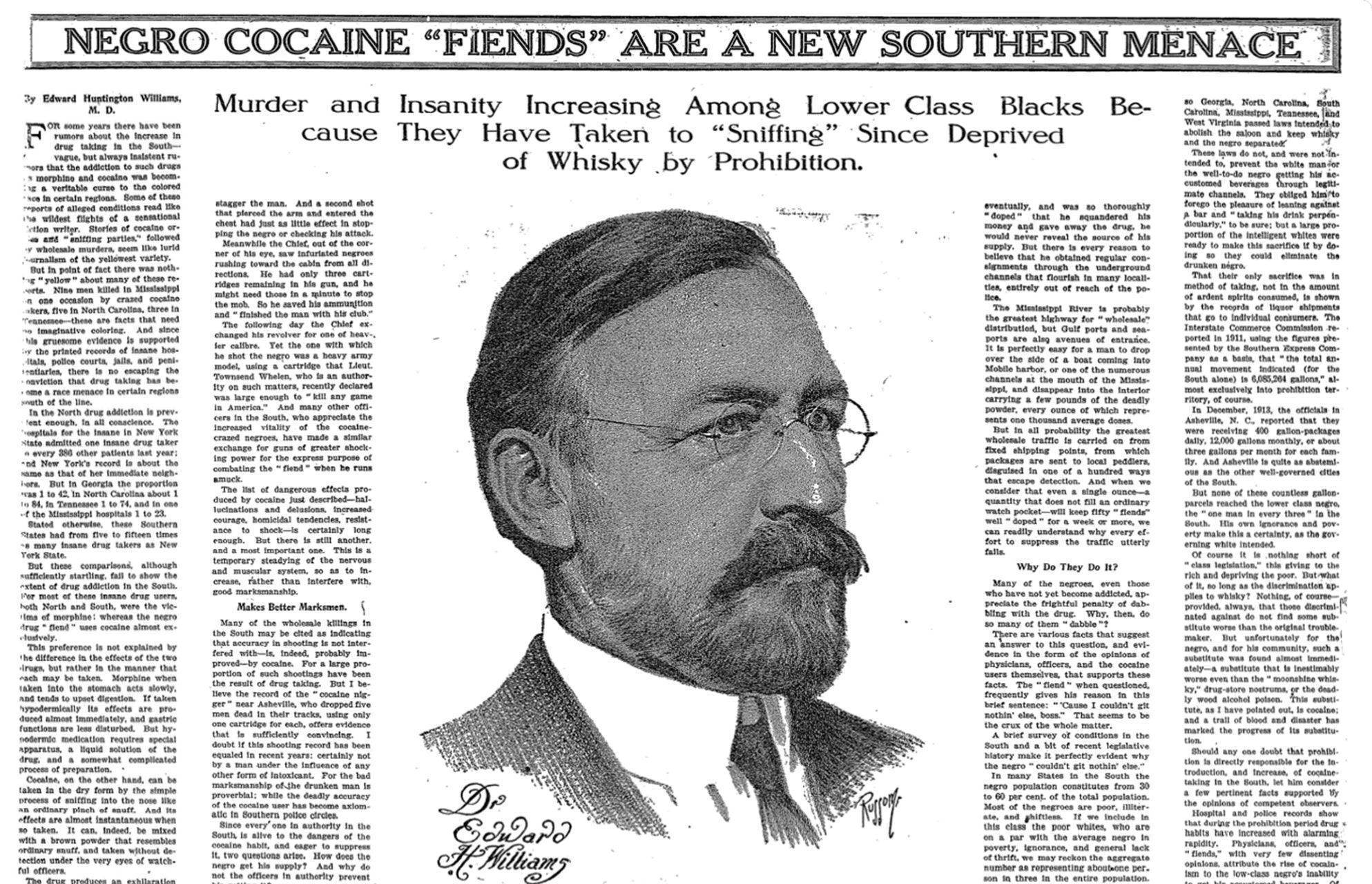When studying drug policy, there is always a common point that can be allowed to generalize: laws, in all corners and at all times, prohibited the consumption of substances without any scientific study.
Common reasons revolve around three main points: social, racial or political issues.
If in the early 1900s, the false thesis was defended in the United States that blacks snorted cocaine before raping white women, for example, the racist intention behind prohibitionism in Brazil came 70 years earlier. In the City Council of Rio de Janeiro, in 1830, one of the first laws on marijuana in the world was sanctioned, criminalizing the custom that enslaved blacks brought from their countries - pitar pango, diamba or many other names by which they knew marijuana.



(specifically) as demons - afflicted with hallucinations and delusions, increased courage, homicidal tendencies, resistance to shock, resistance to gunfire from heavy caliber weapons, and increased accuracy in shooting.
In the 1920s, well before Trump's wall, the head of the US Foreign Prohibition Control Division, Henry Aslinger, would take advantage of the fake news about marijuana inducing promiscuity and crime, to control Mexican immigration.
For everything, the solution seems to be to ban something that until then was free, culturally consumed and even sold in pharmacies. The war on drugs would carry the even greater burden of preventing much-needed scientific studies. For years, they banned not just the substances, but even talking about it.
Pseudoscience is the lie that fantasizes about something scientific, like flat earthism, but it goes hand in hand with denialism, which is the opposition to discoveries and scientific advances.
In 1610, Galileo Galilei published his first theory on heliocentrism (from the Greek, ήλιος Helios = sun and κέντρον kentron = center). The discovery was controversial as it affronted people's biblical faith, and this made the Inquisition prohibit everything related to the new idea of the solar system.
But Galileo made new observations about the tides and comets that contributed to his theory, and these advances culminated in his conviction in 1633 for being "vehemently suspected of heresy". Galileo Galilei died in 1642, under house arrest, 350 years before the Catholic Church, via Pope John Paul II, admitted that he was wrong in his conviction and contradicted the scientist's discoveries.

Galileo Galilei, victim of Catholic pseudoscience.
From the beginning, pseudoscience not only works to deny scientific evidence, but also creates a false truth without any proof.
The legalization of marijuana involves opposing a government that denies scientific evidence while defending prohibition, while investing millions of reais in the production of proven ineffective drugs against Covid-19. As said, more than denying science, pseudoscience creates a false truth.
The internet provided an important democratization of access to information, which allows, for example, that you are reading this text now. And more than this text by a simple columnist, it opens doors to even deeper and more precise discoveries.
Studying history, it is noted that the lie only prospers where ignorance reigns.
So, especially nowadays, the military is to know enough to make this pseudoscience political fad something even more absurd and inadmissible.
Reading, boy!!!
Text: Gustavo Tampa / @gustavotampa



0 comments